We encourage parents and students to consult the student's teacher to discuss which speech and drama syllabus the student should undertake.
The following provides an outline of each syllabus.
Speech and performance practical (formerly Drama and performance)
This creative, formative syllabus is designed to develop interpretative and performance skills across a broad range of styles, genres and eras. Candidates will achieve secure vocal technique, integrated physical response and imaginative and insightful presentation of texts. They will develop the skills required for interpreting to audiences in a variety of performance spaces.
Speech and performance provides structured and sequenced learning opportunities. It starts with the early grades and progresses to the advanced professional skills of teachers or performers. It encourages learning through the exploration and interpretation of a diverse range of texts, and provides the opportunity to combine a number of performance skills in a single examination.
There will be one examiner for levels one and two (preliminary to CSPA) and two examiners for level three (diplomas). Specified objectives provide guidance on examiners' expectations of achievement at each level.
A list of suggested texts for each grade is printed at the end of the syllabus. However, the choice of texts rests with the candidate in response to the requirements in each grade. Versatility in performance is demonstrated through the selection and presentation of the exam program.
Time limits are stated for each exam requirement.
Links, where required, are statements devised and spoken by the candidate to creatively and meaningfully ensure cohesion and unity of prepared programs.
Discussion with the examiner(s) is an essential part of all Speech and performance exams.
Voice and communication
This syllabus is designed to support candidates in getting their message across by developing voice and communication skills for both everyday life and the professional sector.
The exams begin at preliminary for younger students who may wish to improve their English communication skills. More advanced grades cater for secondary and tertiary students or people working in the corporate sector or broader community. Advanced candidates benefit from completing the certificate (CVCA) and the associate diploma in professional communication (APCA), a recognised qualification in academic and industry spheres.
Candidates are examined individually and receive their own report grading and certificate even though they may present for their exam with a group. Members of a group provide support for each other and act as a springboard for discussion. Full details of the composition of exam options are available in the Manual of Speech Syllabuses.
Candidates will develop confidence to communicate and skills to read effectively, speak with clarity, and make presentations to a variety of audiences. In all grades, they may present their program in any order.
From the earliest grades, candidates are encouraged to explore the options that are provided for the choice and presentation of the program. Appropriate choice of material enhances the development of individuality, knowledge and self-confidence in communicating with others. Own choice of texts facilitates the discussion and conversation motivated by the program.
Links (optional) are statements devised and spoken by the candidate to creatively and meaningfully unify the program. Careful choice of material will enhance the development of individuality, knowledge and self-confidence in communicating with others.
Drama and communication
The Drama and communication syllabus uses creative dynamics, which is an improvisational approach. This encourages students to come out of their shells and enjoy the creative dynamic of group work.
When it comes to exams, groups can be large, or as small as just two students.
The program targets listening, concentration and movement alongside the art of drama and entertainment.
Speech and performance theory
Speech and performance theory students learn how to master communicating in the English language. Students focus on the theory and analyse the functional framework of English communication. Students explore linguistic tools, vocal modulation, the use of phonetic tools and the study of theatre and communication theory.
This syllabus supports the practical speech and drama studies. Students should be encouraged to sit for theory exams from the earliest grades of the practical subjects.
In higher grades, the syllabuses align as follows:
• Grade 6 Speech and performance and grade 6 Voice and communication align with grade 4 Speech and performance theory
• Grade 7 Speech and performance and grade 7 Voice and communication align with grade 5 Speech and performance theory
• Grade 8 Speech and performance and grade 8 Voice and communication align with grade 6 Speech and performance theory
• CSPA and CVCA practical certificates align with grade 7 Speech and performance theory








